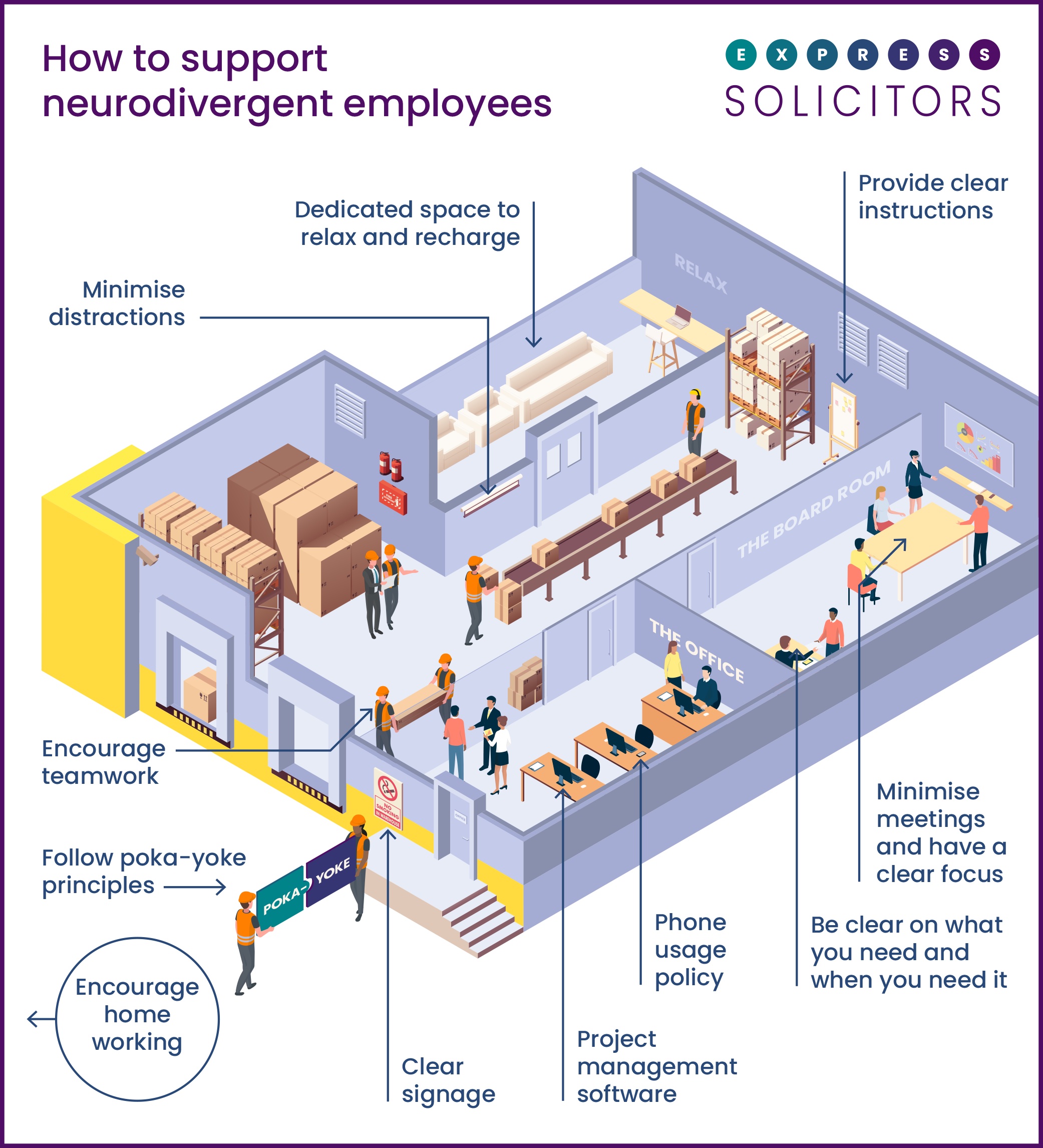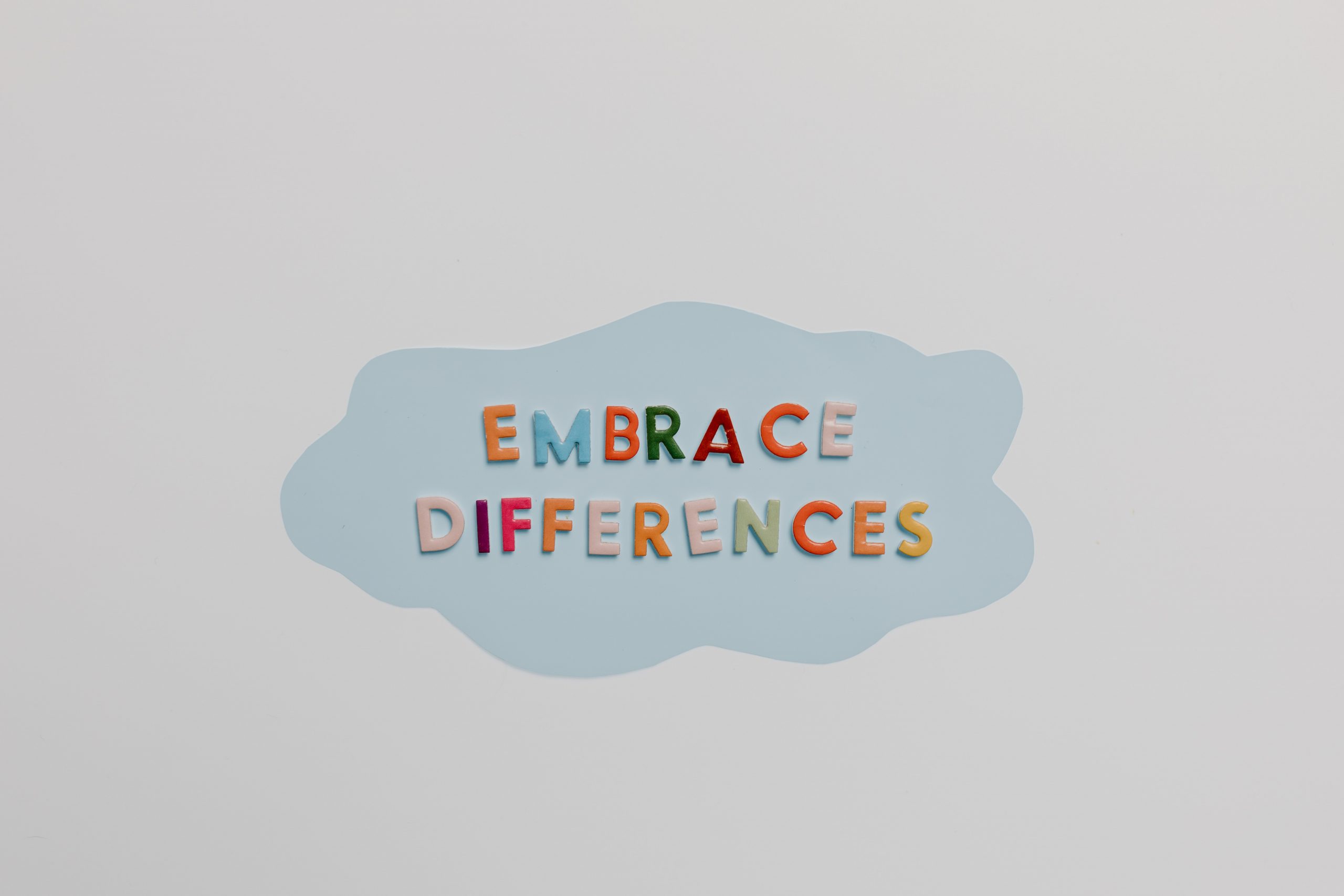Neurodivergent individuals can bring a wealth of benefits to an organisation, whether it be finding creative solutions, working with exceptional attention to detail or helping companies to build a diverse workforce. However, they face an increased risk of injury and lack of support.
Drawing on 20 years of experience with accident at work claims the team at Express Solicitors researched the best ways to help neurodivergent individuals feel safe in the workplace and achieve peak performance. They also consulted with Autistic and ADHD activist Ellie Middleton whose advised “If employers want to succeed in the future, they need to realise this: Having a workforce filled with brains that work in different ways is not only the right thing to do – but the only way to succeed.”
Quick overview
- Recent studies have shown that neurodivergent individuals are more prone to accidents in and out of the workplace.
- Those who have a diagnosis of ADHD or Autism can be extremely productive, vital members of the team.
- By making small adjustments and creating a safe, productive workplace, employers can benefit from a mutually beneficial relationship with neurodivergent employees.
- Most improvements are cheap, or even free, and will benefit all employees, not just those who are neurodivergent.
- Hiring neurodivergent individuals can prove to be a source of competitive advantage for companies looking for unique voices, more creativity, or different approaches to problem solving.

The top seven improvements to make the workplace safer for neurodivergent individuals
From Japanese productivity hacks to software and signage, the team researched free and affordable solutions to make neurodivergent individuals feel safe and reduce their risk of injury. As a bonus, these tips also can improve productivity and the safety of all employees.
They discovered the following recommended tips:
- Signage – Install easy to see signage with clear visuals, especially for any critical safety information.
- Clear instructions – Guidance for tasks or equipment must be provided in a clear, concise, and logical manner. This reduces the risk of improper use and associated injuries.
- Minimise distractions – Avoid sensory overload, a key risk for neurodivergent individuals, and prevent the risk to their safety by reducing noises, smells, lights and other stimuli.
- What by when – For each task you should explain; What you need, when you need it by and (ideally) why you need it. This reduces the risk of errors that could have led to accidents.
- Work where you feel comfortable – Some individuals are more productive in a work environment whist others need a quiet space at home. So, let employees work in a location that maximises their productivity and where they feel the safest.
- Encourage teamwork – Working in a group can reduce the risk of accidents by ensuring others can point out any risks and that safety protocol is followed.
- Poka-yoke – This productivity hack from Japan involves adding checks and balances so errors are less likely to occur. For example, in manufacturing, having two pieces that can only connect in the right way.
Whilst this may seem like a lot of changes as Ellie Middleton explains, they also don’t need to break the bank:
“I think a lot of employers push back on making more of a conscious effort to be inclusive because they hear the words “accessibility” and “inclusivity” and presume that the required changes would be expensive, complicated and lengthy. They envision having to rip up and redesign the office, implement entirely new processes and spend mountains of money on expensive software. But, in reality, most of the changes that make the biggest difference to neurodivergent people are free, quick and simple. They’re not groundbreaking – in fact, they are mostly just rooted in kindness, clarity and common sense.”
When asked about this topic Damian Bradley, Partner at accident at work experts Express Solicitors commented: “Whether you’re neurodivergent or not, your employer has a responsibility to ensure you have adequate training and a safe work environment. Sadly, we see examples of negligence on a daily basis, which could have been avoided by using many of the tips above.”
Six benefits of hiring neurodivergent individuals
Making these changes also brings a range of additional benefits, as Ellie Middleton explains: “Neurodivergent employees are just like any other employee in your team – we come with both strengths and struggles! Yes, there are some things we find trickier in the workplace. But if you can accommodate and support us with those things, you’ll unlock a whole load of skills and abilities that make up a great employee.”
This sentiment is echoed by Sir Richard Branson who in 2021 stated that “The world needs a neurodiverse workforce to help try and solve some of the big problems of our time.”
The team also found through their own research that adding neurodivergent individuals could help companies to:
- Increase competitive advantage through unique skill sets.
- Improve attention to detail.
- Bring new approaches to problem solving.
- Increase creativity.
- Build a diverse workforce.
- Limit ‘groupthink’ by encouraging individual voices to be heard.
In closing, Ellie Middleton, summed up why neurodivergent individuals are so essential to the future for any thriving company: “The success of the future belongs to businesses that prioritise being neuroinclusive – sharpish. We need to move hiring processes away from a one-size-fits-all approach – such as a traditional interview environment – to a flexible approach to allow the individual to prove their potential in a way that suits them. We need to offer flexibility, understanding and support to our whole workforces. We need to remember that 100% doesn’t look the same for everybody, and adjust accordingly.
The world is changing faster than ever, and our best (and only) chance of keeping up is by tapping into as many different ways of thinking as possible.
Businesses need talent that can see things from a new perspective, identify patterns they hadn’t noticed before and bring brand new ideas to the table – and that means tapping into neurodivergent talent pools.”









